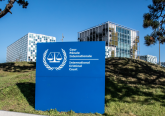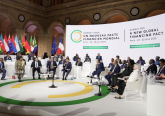I’ve published a new policy brief with the Foundation for Law, Justice and Society, exploring the vexed issue of women’s rights on the Indian subcontinent, through the prism of the shifting emphasis of secularism and Islam in the Bangladeshi Constitution, and the impact this has on gender equality and family law.
As the world reacts to the conviction of the four men whose gang rape of a young woman in a moving bus in Delhi sparked riots and international condemnation, the policy brief, entitled Islam and Women in the Constitution of Bangladesh, provides a timely insight into the complex interrelation of law, religion and gender politics on the subcontinent.
My report finds that whilst the Constitution has been referred to in only a limited fashion in cases involving the protection and enhancement of women’s rights, notable exceptions include violence against women resulting from religious edicts: “In response to a spate of violence directed at young rural women as part of their sentencing by fatwa … the Supreme Court declared such sentences unconstitutional in 2001.”
The policy brief emerges from a workshop entitled Law, Religion and Social Order: Unpacking the Promise of Sharia, which sought to examine the relationship between Western law, Sharia, and the future of Muslim societies.
The workshop was held as part of a new programme entitled Development and the Implications for Law, Justice and Society, which will engage with practitioners and policymakers from developing countries, major donors, and international agencies to examine the interaction between law and socio-economic development, democracy and human rights in post-Communist countries, in Africa, in Arab nations, and in Latin America.
A follow-up workshop on Constitutions and Religious Faith will be held in March 2014, and the next event in this programme will take place on 16 October in the form of a panel discussion on the Post-2015 International Development Agenda. To find out more and register to attend, please visit the Foundation’s events pages.
You can down the full report here: Islam and Women in the Constitution of Bangladesh.









No Comment